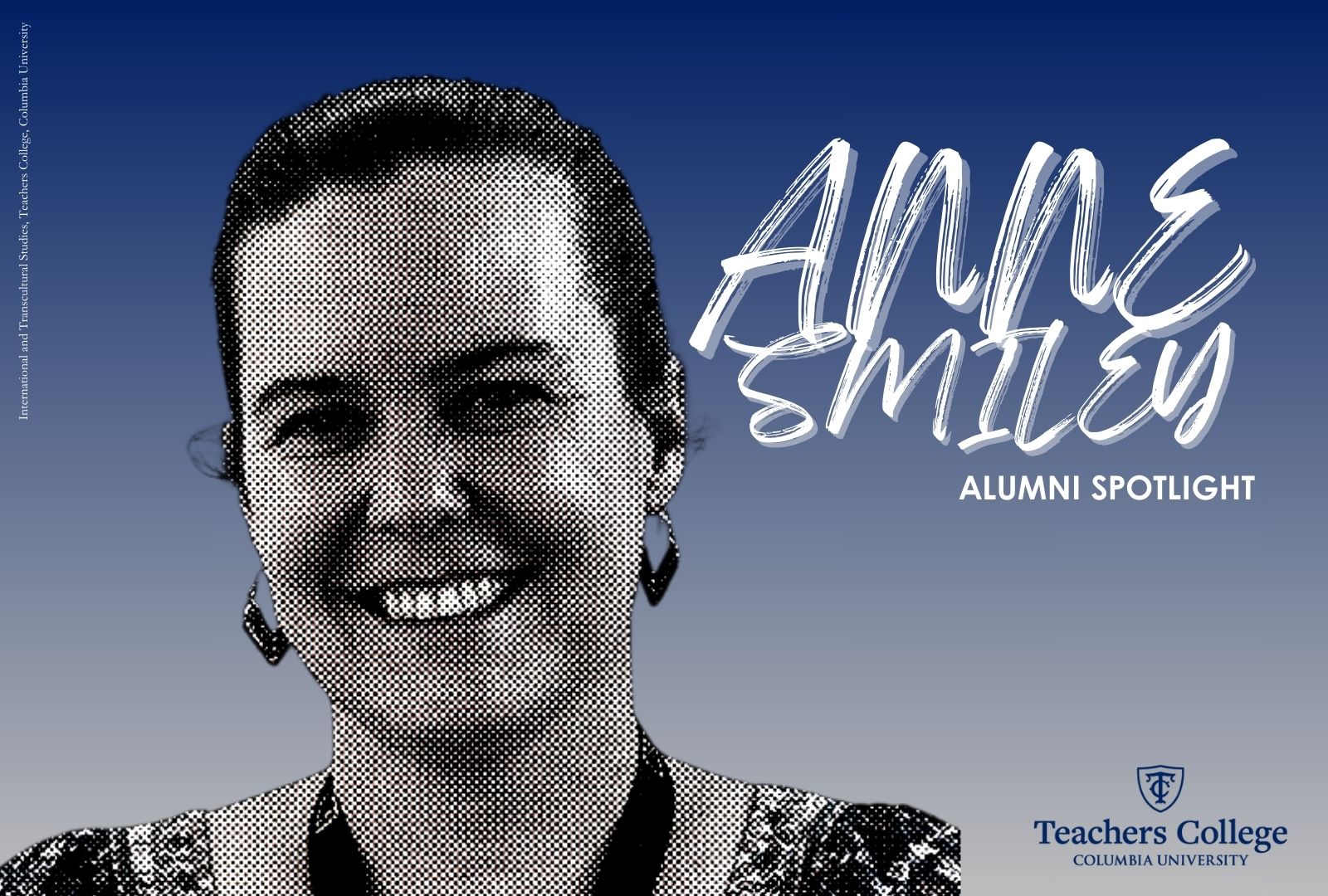Anne Smiley’s career in international educational development has been shaped by her dedication to improving education outcomes in crisis-affected regions, a journey she began early on in Cairo, Egypt. Before starting her studies at Teachers College, Anne served as the Director of Adult Education at St. Andrew’s Refugee Ministry (now STARS), where she provided educational support for refugees. After two years in Egypt, she returned to the United States to pursue a Master’s degree in Education Policy at the University of California, Davis, which ultimately led her to the doctoral program in International Educational Development at Teachers College.
In 2006, Anne joined TC’s doctoral program under the mentorship of Dr. Monisha Bajaj (Associate Professor at Teachers College from 2005-2014), bringing a deep interest in African education and education in emergency contexts. During the summer of 2007, an internship supporting women’s literacy programs in Southern Sudan (prior to its independence) further ignited her passion for creating opportunities in crisis settings. This work fueled her desire to better understand and support education systems in emergency contexts.
While Anne initially planned her dissertation research in Southern Sudan, the political climate forced a shift in her approach. Instead, an opportunity arose during a course on education policy evaluation led by Gita Steiner-Khamsi, in partnership with the Open Society Initiative of Southern Africa (OSISA). Anne traveled to Lesotho, where she worked with local researchers to evaluate a bursary program for orphans and vulnerable children (OVC) affected by the AIDS pandemic. This experience ultimately shaped her dissertation focus, supported by a Fulbright grant, where she spent the 2009-2010 academic year in Lesotho examining how OVC navigated secondary education. This research underscored the complexities of education in emergencies and provided insights into the types of policies and programs that could better support children in adverse conditions.
Reflecting on her journey, Anne recalls her early years in Egypt as pivotal, shaping her understanding of what a career in refugee education and international development could look like. During her final year at Teachers College, she joined the Academy for Educational Development (AED) on a USAID-funded project in Rwanda, a role that led to a long-term position with AED, later acquired by FHI 360. Based in Washington, DC, Anne honed her skills in proposal writing, program support, and the design of monitoring, evaluation, and research across multiple countries and donor landscapes.
Today, Anne is based in Kampala, Uganda, where she works as the Deputy Project Director, Technical and Research, for the PlayMatters project with the International Rescue Committee. This $100 million initiative, funded by the LEGO Foundation, seeks to integrate “Learning through Play” into teacher professional development within refugee education systems in Ethiopia, Tanzania, and Uganda. Anne leads a team of education and research specialists to create Learning through Play content that is tailored to each local context, collaborating closely with government bodies and humanitarian organizations to integrate these methods into policies and practices. Her role also involves directing the research component of PlayMatters by conducting studies in partnership with local universities to enhance the project’s impact and evidence base.
Looking ahead, Anne is passionate about addressing one of the most pressing challenges in education – empowering and supporting teachers, especially in conflict-affected regions. She believes that increased advocacy for teacher training and compensation could transform the profession and improve education access and quality worldwide. Addressing these needs across the humanitarian-development spectrum could provide long-term support for teachers, even in times of crisis.
To the ICEd community – Anne shares her optimism about the positive shifts within international education over the last two decades. This includes the emphasis on localized programming and research and achieving collective goals in humanitarian and development contexts. She encourages ongoing growth within the field, reminding all practitioners that every child deserves quality education, and every teacher deserves the support needed to further this work.
